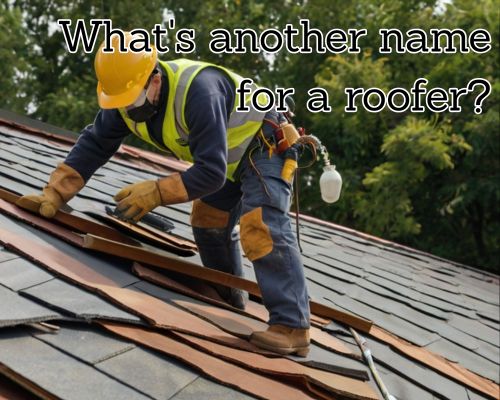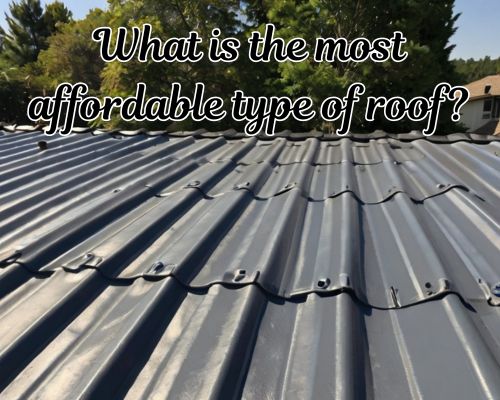What’s Another Name for a Roofer? Exploring the Diverse Terms for Roofing Professionals in New Jersey
When you think of roofing work, the term “roofer” likely comes to mind. However, there are a variety of alternative names used to describe this profession, depending on the region, job description, and specific skills involved. If you’re a homeowner in New Jersey looking to hire a roofing expert, understanding these different terms can help ensure you’re reaching out to the right professional for your needs. With CJ Commercial Roofing NJ, we’ll delve into alternative names for roofers, their roles, and how they are recognized within the New Jersey roofing industry.

1. Roofing Contractor
One of the most common alternative names for a roofer is “roofing contractor.” In New Jersey, roofing contractors like in CJ Commercial Roofing NJ are licensed professionals who provide services ranging from roof repairs and installations to inspections and maintenance. Unlike general laborers, a roofing contractor typically oversees a team of roofers and ensures the project complies with local building codes and safety regulations.
In cities like Newark and Jersey City, roofing contractors are integral to ensuring the structural integrity of both residential and commercial buildings. When searching for a roofing expert in New Jersey, hiring a licensed roofing contractor ensures that the job will be done according to industry standards and local laws.
2. Roof Installer
The term “roof installer” is often used to describe professionals who specialize in installing roofing systems, including shingles, tiles, metal roofs, and flat roofs. In New Jersey, roof installers play a crucial role in making sure a roof is properly installed to withstand the state’s harsh weather conditions, including snowstorms, heavy rain, and extreme heat.
Roof installers are skilled in measuring, cutting, and placing roofing materials while ensuring that the roof is both aesthetically pleasing and functional. If you’re in need of a new roof in areas like Hoboken or Montclair, a roof installer might be the ideal choice to help you choose the right material and complete the installation efficiently.
3. Roof Repair Specialist
For homeowners in New Jersey dealing with leaks, damaged shingles, or wear and tear on their roofs, the term “roof repair specialist” is a familiar one. These professionals focus specifically on repairing existing roofs rather than replacing them entirely. Roof repair specialists can handle everything from minor fixes to extensive repairs following severe storm damage.
In New Jersey, where weather extremes can cause significant damage to roofs, roof repair specialists are essential for maintaining the longevity and safety of a home. Whether you’re in need of a simple patch in your roof in Cherry Hill or require a complete overhaul due to storm damage in Trenton, roof repair specialists are often the go-to professionals.
4. Roof Maintenance Technician
Another term you might encounter is “roof maintenance technician.” These professionals focus on routine roof inspections, cleaning, and preventative maintenance to extend the lifespan of your roof. In New Jersey, where roofs are subjected to constant environmental stress, regular maintenance is key to preventing costly repairs or premature replacements.
Roof maintenance technicians are adept at identifying small issues before they turn into larger, more expensive problems. If you live in coastal towns like Atlantic City or Seaside Heights, where saltwater corrosion can be an issue, hiring a roof maintenance technician is essential for keeping your roof in top condition throughout the year.
5. Roofing Mechanic
Although less commonly used, the term “roofing mechanic” refers to professionals who are highly skilled in the mechanical aspects of roofing. These workers often specialize in the installation, repair, and maintenance of specialized roofing systems, including metal roofs and flat roofs with intricate drainage systems. Roofing mechanics may be called upon for highly technical roofing projects in industrial settings or in residential areas where specific roofing needs arise.
In New Jersey, roofing mechanics are often required for commercial buildings in cities like Paterson or Princeton, where complex roofing structures are common. Their expertise helps ensure that intricate roofing systems are installed and maintained properly to prevent leaks and other issues.
6. Flat Roof Specialist
In New Jersey, where both residential and commercial properties often feature flat roofs, a “flat roof specialist” is an expert in the installation, repair, and maintenance of these types of roofs. Flat roofs require a different set of skills compared to traditional sloped roofs, and flat roof specialists are adept at handling the unique challenges posed by these structures, such as drainage and waterproofing.
Flat roof specialists are essential in areas like Camden or Edison, where commercial buildings and warehouses often have flat roofing systems. These professionals are trained in handling roofing materials specifically designed for flat roofs, including modified bitumen, EPDM, and TPO membranes.
7. Roofing Consultant
Sometimes, homeowners and businesses in New Jersey may require the expertise of a “roofing consultant.” A roofing consultant is not directly involved in the hands-on aspects of roofing but rather provides expert advice on roofing projects. This can include helping homeowners or businesses select the right materials, budgeting for a roofing project, or ensuring the project complies with local building codes.
In large urban areas like New York City (just across the river) and parts of New Jersey, roofing consultants are hired by property managers or business owners who need expert advice before making decisions on major roofing projects. A roofing consultant can be invaluable in areas where multiple properties require roofing services, such as the bustling downtown of Jersey City.
8. Shingler
A “shingler” is another term that’s commonly used in New Jersey for professionals who specialize in installing shingles. Shinglers typically work with asphalt, wood, or composite shingles and are highly skilled in laying shingles in patterns that ensure the roof’s protection from the elements.
Given New Jersey’s wide range of homes, from older houses in places like Princeton to newer homes in the suburbs, shinglers are in high demand. Shinglers often work under the direction of roofing contractors but are experts in the specific skills required to properly install shingles.
9. Roofing Laborer
Finally, a “roofing laborer” is a more general term that describes a worker who assists with roofing projects but may not necessarily have specialized training or certification. These individuals are essential to the overall roofing team, helping with tasks like carrying materials, setting up scaffolding, and performing manual tasks under the direction of skilled professionals.
Roofing laborers are often employed in large roofing projects across New Jersey, from residential neighborhoods in Bloomfield to commercial sites in Newark. While they don’t perform the specialized tasks of roofers or contractors, they play a vital role in the success of any roofing job.
Conclusion
When it comes to roofing professionals in New Jersey, many terms can be used to describe those who specialize in various aspects of the trade. Whether you’re searching for a roofing contractor in Newark, a roof installer in Hoboken, or a roof repair specialist in Trenton, understanding these different titles can help you find the right expert for your needs. By choosing the appropriate professional based on their specific skill set and area of expertise, you ensure that your roof will be properly maintained, repaired, or replaced, keeping your home safe and secure against the harsh New Jersey weather.

